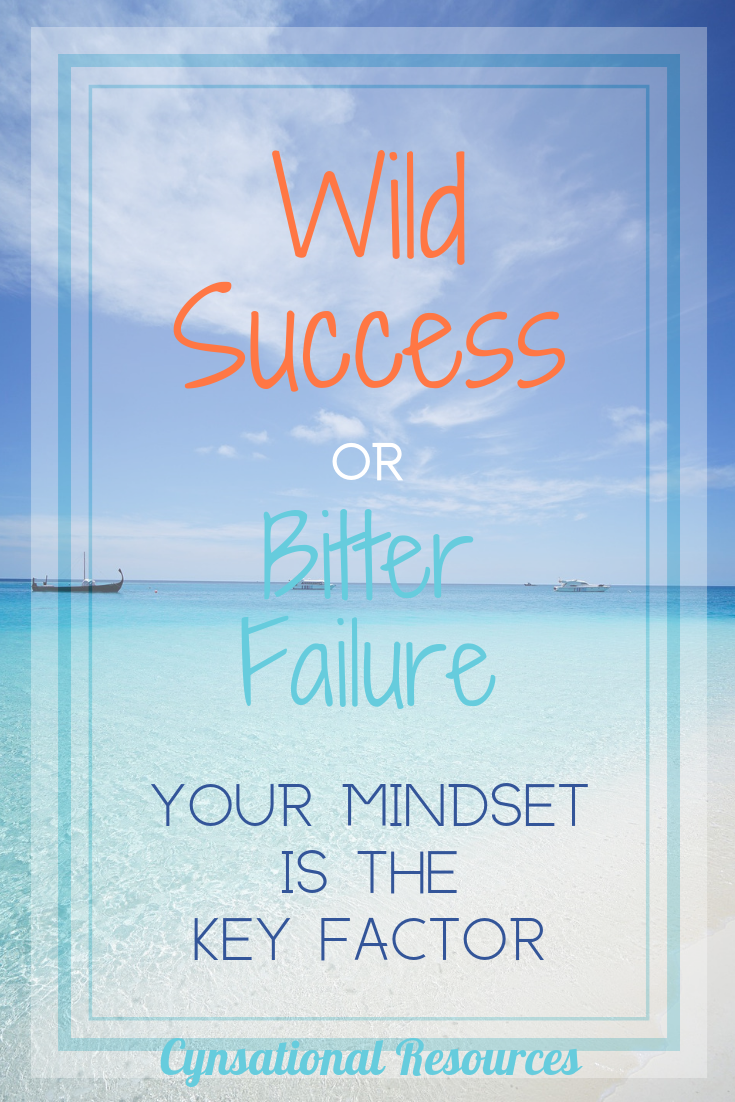How to Start a Business, part two
Develop an Entrepreneurial Mindset
In a previous post, I discussed the importance of developing a mindset to support your entrepreneurial spirit and start your own business.
Making the jump from corporate life or as a stay-at-home parent to business owner requires you to start thinking differently. First, you need to know your ‘WHY’ .. the big, overarching reason that will propel you. Your ‘why’ should be strong enough to get you through the tough decisions, the overwhelming workload, and the rough patches.
You also need the right mindset - a fixed set of ideas that we all maintain about a specific subject. It determines how we will react to particular situations.
What are the characteristics of the mindset of successful business owners and entrepreneurs?
Let’s look at these 10 mindsets, habits, and qualities of successful entrepreneurs:
Positive Thinking:
No matter what happens, the ability to frame it in a positive light is essential. Don’t roll your eyes. It’s true.
You're gonna face a variety of setbacks as a business owner. From minor (a vendor raising prices) to more severe (sudden drop in traffic when Google algorithms change). Hopefully, you won’t have any catastrophes (fires, earthquakes, etc.), but they do happen.
Once the storm has passed, your essential skill is going to be examining what happened, allowing it to inform and improve your business. Practice positive thinking to develop your entrepreneurial mindset. (Discover 12 ways to change your mindset and outlook on life here.)
Learn from Failure and Move On:
One of my favorite quotes is from Thomas Edison about inventing the light bulb:
Entrepreneurs generally don't achieve success on the first try. So they try again .. and then try again. This is because successful entrepreneurs are resilient and persistent.
Did you get two people on your first webinar? Great! What questions did they ask? What attracted them to your webinar? Use that information to tweak your advertising to attract more the next time. Resilience and persistence are essential entrepreneurial habits.
Know the Moment to Give Up:
Learning from failure is one thing. Doing the same thing with no hope of reaching your goal is another. A good entrepreneur also knows when to stop. Wasting time and energy on a project that isn’t working isn’t smart.
It can be hard to “pull the plug” on a project or product idea. It can be difficult to let someone go that you’ve hired to help. When you begin to suspect the hoped-for outcome isn’t going to happen, evaluate and make the decision. Don’t waste your time and energy.
Develop the habit of effective and successful entrepreneurs, evaluate and decide what is working and what's not. Then take the next logical step.
Learn to Delegate to Others:
Successful entrepreneurs don't try to do everything themselves. It is impossible to do everything that needs to be done when you are a business owner. That is not a question or up for debate. You cannot do it all. More importantly, you shouldn’t try to do it all.
There is a difference between working ON your business and working IN your business. If you are answering customer emails, fighting with Wordpress plugins, spending hours scheduling content and social media, you are working IN your business.
As the owner of the business, you're the leader. Your time and energy needs to be spent on projects and tasks NO ONE ELSE can do. Your time should be spent working On your business.
Learn to reach out for help and designate tasks to team members or VAs best equipped to do them.
(Do you need help learning how to outsource your tasks and projects? Download the ***FREE*** Big Business Breakthrough)
Never Stop Learning:
Entrepreneurs love to learn. Successful entrepreneurs hunger for knowledge. They explore new ways of thinking, and they embrace change.
Learning and exploring new ideas and concepts is different than chasing the latest shiny object that appears and distracts you from your business.
Develop the entrepreneurial habit of intentional learning. For instance, entrepreneurs select books from their reading list and topics of the podcast episodes they consume to coincide with what is happening in their business.

For example, suppose your focus for this quarter is to increase the number of email subscribers. In that case, the books you read are about email copywriting, and you are listening to podcast interviews about email campaigns, lead magnets, and best practices for segmenting your email list.
And successful entrepreneurs keep a list of books they want to read, concepts they want to learn, and people they want to learn from.
Learning is self-improvement. It’s mind-improvement. Every day you need to spend some time on improving and learning.
(Is Shiny Object Syndrome a problem for you? Read this)
Successful Entrepreneurs Take Risks:
Not the base-jumping-off-the-tallest-building type of risk. But calculated risks to create and maintain growth and momentum in their business.
A risk is defined as something with a possibility of loss. We all take risks daily (walking down the sidewalk, driving a car, eating take-out, etc.). When the potential loss is more significant than expected, we become more aware and in tune with the risk. For example, driving on a narrow, winding mountain road may feel riskier than driving in your city.
In your business, the risks you take may be putting all your focus on one product, investing in equipment to manufacture your product in-house, or changing your marketing strategy. Of course, there is potential for loss, but if the risk is well-considered and calculated, the rewards will be great.
(Plus, we already know that successful entrepreneurs know how to deal with failure).
Other habits of successful entrepreneurs:
Eyes and ears are always open:
Entrepreneurs are always looking for new opportunities, even when there is not necessarily an immediate result. So jot down ideas, inspirations, and opportunities as soon as they occur and keep an ongoing list. You will be happy that you did.
Follow-Through:
Entrepreneurs do what they say they are going to do. They don’t make promises they can’t keep. And they don’t let things slide through the cracks. If you say you will do it, do it.
Remain Flexible:
They are open to continuous change and improvement and ready to adapt or change plans at a moment's notice.
Keep Good Company:
Entrepreneurs surround themselves with other entrepreneurs, positive influencers, and like-minded individuals. It may be challenging, but your energy will improve when you weed out the nay-sayers and Negative Nellies.

8 Strategies to Increase your Entrepreneur Confidence
How to Harness the Power of Habits and Routines








